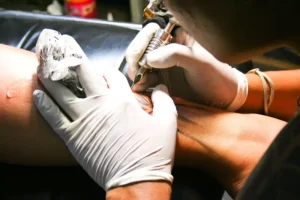Аллокация в IPO: определение термина, примеры, аллокация активов в портфеле
14 سبتمبر، 2021Chapter 9: Alcohol and Other Drugs
22 سبتمبر، 2021
Encouraging someone to enter a rehabilitation program can help address health risks and prevent further harm. Getting someone into a rehab center can be challenging and sensitive, but it is often necessary to help them overcome addiction and regain control of their lives. Intervening and guiding them toward rehab requires careful planning, compassion, and understanding. If you have a loved one struggling with addiction, getting them into rehab can be a challenging but crucial step towards their recovery.
- Constantly nagging, haranguing, begging, shaming, pleading, etc will all push them away more.
- Let them know that you are there to support them unconditionally, no matter the challenges they may face.
- Whether they feel that they need alcohol to cope with stress, struggle with seeing how their addiction affects those who love them, or disagree that they have an addiction, a candid conversation may be helpful.
Intervention and Support
In addition to legal support, you can expect to receive several types of treatment in your addiction rehab program. There are many treatment options, some of which may be more well-suited to your needs than others. One way legal assistance can support recovery is by addressing legal barriers to long-term recovery. People facing legal issues may have a hard time achieving long-term recovery for many reasons. For example, having the stress of a court case looming over your head can make it difficult to focus on recovery.
Regional Substance Abuse Statistics & Rehabs

Many individuals struggling with addiction also have co-occurring mental health disorders, such as depression, anxiety, or post-traumatic stress disorder (PTSD). Individualized treatment plans simultaneously address addiction and co-occurring disorders to provide comprehensive care and improve overall well-being. In some cases, medications may be used to aid in the detoxification process. These medications can help alleviate withdrawal symptoms, reduce cravings, and support the individual’s comfort during detox. Furthermore, rehab centers provide emotional support and counseling during detox to address psychological distress, offer coping strategies, and help prepare individuals for ongoing treatment. Before finalizing a rehab program, it’s important to consider insurance coverage and financial aspects.

Ready to Take the Next Step?
While the individual has a right to refuse an examination, a court can take a person into custody despite their refusal. Filing an emergency petition for commitment by someone who has knowledge of the individual’s condition. Let them know that you are there to support them unconditionally, no matter the challenges they may face.
Can Tough Love Help or Hurt Someone With an Addiction?
However, it is important to note that the extent of coverage may vary depending on the insurance provider and the specific plan. To determine the coverage for addiction treatment, it is recommended to contact the insurance provider directly. They can provide detailed information about the types of treatment covered, any limitations or requirements, and the extent of financial responsibility how to get someone into rehab for the individual seeking treatment. For those seeking additional amenities and personalized care, luxury rehabs provide upscale accommodations, resort-like settings, and a wide range of supplementary services to enhance the treatment experience. Private rehabs, on the other hand, offer exclusive treatment options and typically do not rely on insurance coverage for payment.
Open to Travel? Check out Top-Rated Options
Our treatment facility offers everything required to handle withdrawal and detox symptoms, and we have a complete team of medical professionals to handle every aspect of addiction recovery. We offer amenities that will make your loved one feel safe and comfortable. Whether you need outpatient treatment, inpatient treatment, sober living, or support groups, we have treatment options to meet you where you are and get you where you want to go. It’s helpful to know how much your insurance covers, along with co-pays and deductibles. Taking a bit of time to go over these details can ensure you’re not surprised by expenses nor left worrying about finances during treatment. AAC is a leading rehabilitation provider, offering all levels of care from detox to sober living, including 9 inpatient facilities nationwide.
Finding a Substance Abuse Treatment Center in New York State

For example, in Florida, the Baker Act has been used to force someone into rehab. This law encourages people to seek inpatient care for mental health issues. However, for those who cannot make this decision due to the severity of their condition, there is precedent for forcing https://ecosoberhouse.com/ them into rehab. Participants then gather to discuss the impact of the addiction and to rehearse what they will say. During the intervention, each person takes a turn to speak, sharing specific instances of how the addiction has affected them and the individual.
To overcome the challenges that youth face in overcoming substance addiction, some treatment centers provide teen-specific treatment programs. Our database has a filter that allows you to find the closest rehabs that provide that treatment option. Deciding to seek help for addiction is a courageous step, but balancing treatment with work responsibilities can be a concern for many people.

